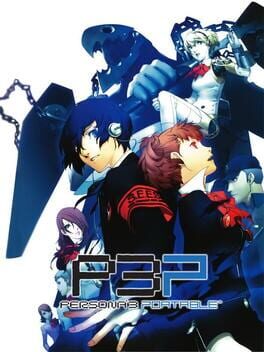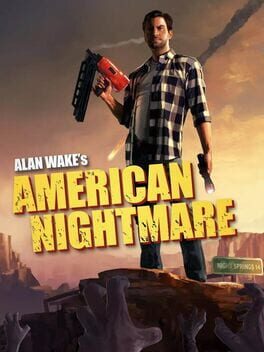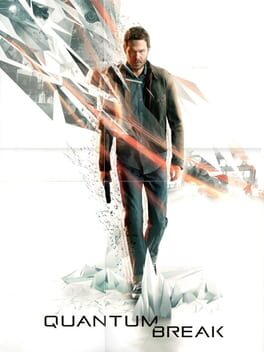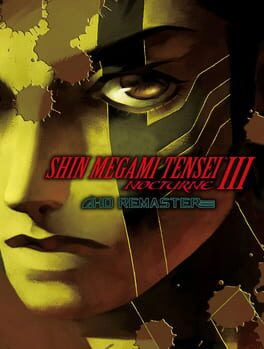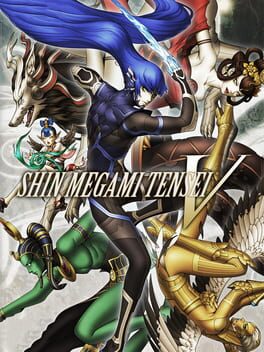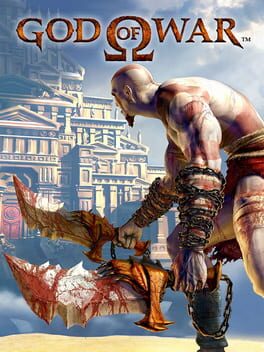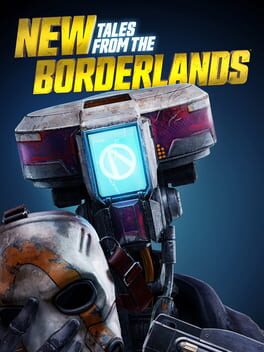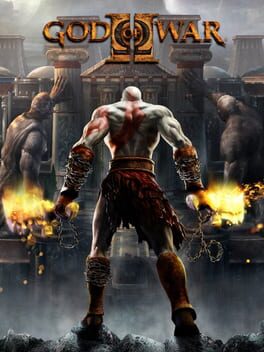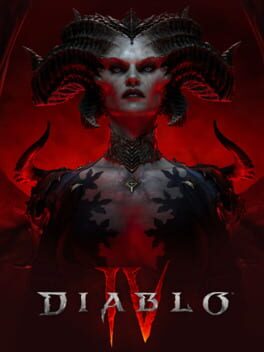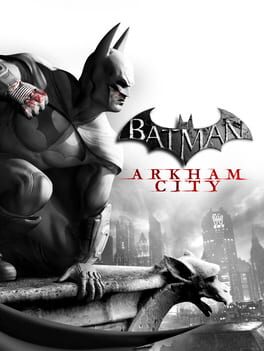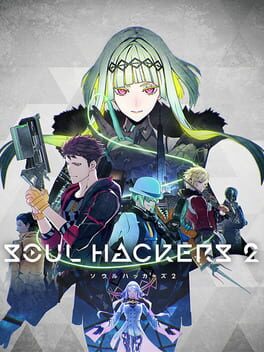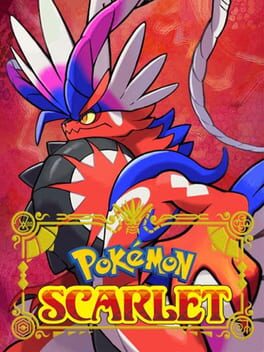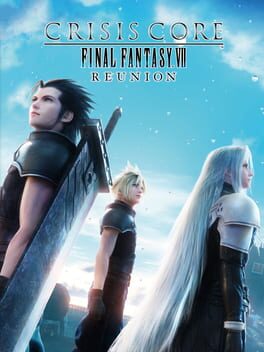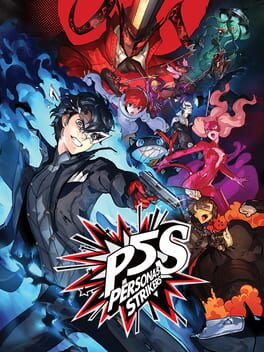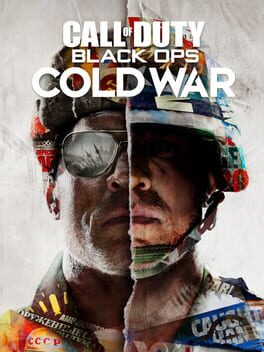Jinzuku
BACKER
2009
I didn't think it would be possible for Atlus to make me fall in love with another cast of characters as it did with Persona 5, especially for an earlier game, but here we are, they achieved it. At first, the game felt aimless as you were just going through the motions without a central plot tying it together. However, it didn't last long for the threat to be established. The game largely revolves around ascending the mysterious tower known as Tartarus, with segments blocked off until you've progressed in the main story. Tartarus itself is very mundane, as it's the same process of walking through procedurally generated hallways, fighting enemies and collecting loot for over 200 floors. As with the other games, the characters and your interactions with them are where it excels. Spending time with the various NPCs and understanding what drives them never gets old. These games are always very long but at the same time, you never want them to end as it means giving a bittersweet farewell to those you've come to know and love.
It doesn't add anything to the overall story of Remedy's Universe. Still, having more around the struggle between the main protagonist and his dark alter ego is nice. The gameplay is the same as the first game, with some new weapons you'll likely not use in favour of the classic set-up. The Twilight Zone-like narrator is enjoyable to listen to. I don't think I will ever get tired of hearing "Champion of Light" and "Herald of Darkness".
2016
Well, this was a weird experience. At its core, there are three elements to the game. First is the third-person shooter element where you use the powers of time to zip around the area, freezing enemies as you stack bullets into a satisfying collective shot. Second is the episodic nature with a single dilemma at the end of each, with a little preview of the consequences of each choice before making it. The third is the live-action TV show, where the content is based on how you chose to get through the previous dilemma while making a few minor tweaks if you got all the collectables in that section. While the live-action part is quite cool, seeing the character being played by their actual actors, they go on for far too long. So much so that there were times I had to remind myself that I was playing a game.
A lazy remaster of one of the hardest turn-based JRPGs around. So much so, the remaster added an easy mode to entice new players. The game forces you to think of strategies and team composition when tackling bosses. In some cases, you wouldn't even be able to grind past them due to certain mechanics. The game itself has the usual things of an SMT game with similar demon designs and an in-depth fusing mechanic. The extent of the remaster is simply to upscale it to fit modern TVs, other than that, the textures are pixelated and the cutscenes are still 4:3. The world and environment are bleak with not a lot to it, you're pretty much playing this game for its difficulty.
2021
The brutal difficulty of SMTV cannot be understated. You can't simply grind yourself through the game as each boss requires you to organise your team of Demons to cater to them. This is due to the Press Turn System which rewards you with extra turns if you hit an enemy's weakness. However, this works both ways, so you can't be complacent otherwise you'll find you've been destroyed before you even get a chance to look at them funny. Due to the difficulty spike each boss presents, progress can take a lot longer than you may like as you have to go away to acquire & fuse your Demons to get the desired team and strengthen them to even stand a chance. If you love JRPGs but feel they are too easy, then this is one to try. You'll have a hell of a time playing it to credits.
2009
While it was great to see the origins of Kratos, this was a product of its time that aged poorly. I found I died more to the fixed cameras and the god-awful and punishing platforming. There is a part of me that wonders whether it would have been better to watch the cutscenes instead, but things like this are better experienced to completely appreciate just how far the series has come and why the recent games are so revered. This was my first time using the PlayStation streaming service, and I've tried to not hold it against the game itself.
While it's graphically miles better than the first Tales from the Borderlands, the story itself leaves much to be desired. The writing is shocking, even when you consider that it's set in the Borderlands universe. One of the main character's voice acting is a bit wobbly, with their accent wavering in and out. The Vaultlanders mini-game was the most fun I had playing this, I just wished there was more of it. As with some of the past games, while it's giving you choices throughout the game, you do start feeling that the dialogue choice isn't deciding what happens but more how it happens.
2009
For a sequel, I was hoping they had improved on the formula somewhat. Instead, this was the same game as the first, but without the origin story making it better. This is one I could have saved myself some time and watched a video of the cutscenes. It did serve as a good reminder of how awful Quick Time Events are and how glad I am that they aren't as bad as this anymore. It's hard to believe that this originally came out in the same year as games like Bioshock and Heavenly Sword.
2023
My playthrough was done solo as a Summoner Necromancer, granting me a horde of Skeletons to do my bidding. While the gameplay is fun, it can be repetitive as you rely on the same handful of skills during every fight. There were even times when I felt myself falling asleep. I think this is a game best enjoyed playing co-op with friends to help keep yourself engaged. The low-toned music is kept very much in the background, which doesn't help keep you immersed. There are more cutscenes this time around, which shifts the perspective from its isometric default, allowing you to see the character models in more detail. Although, it would have been nice to have more of them. I will likely continue chipping away at the extra content and difficulty levels unlocked after beating the story.
2011
Compared to the first game, it's the same stuff in a different location. The combat hasn't changed, even with a few more gadgets added to the mix. Despite being a longer game, it feels like less story is in it, but that could just be me. The Riddler trophies were a bit more annoying to collect this time though, enough to remove any motivation I had to get them. More of the same isn't necessarily bad when the formula is solid. Overall it's good clean fun to be the Batman.
2022
While it borrows themes from the Persona and mainline SMT games, it never manages to get close to those heights. When the most interesting thing is the protagonist's jacket, you know you've got problems. One saving grace is that this protagonist speaks, and the party is old enough to drink a beer. While the main story is pretty good, you'll be forced to grind to stand a chance at progressing. The grind itself isn't fun, even with the 3 sets of side objectives to help. All in all, it will scratch that turn-based RPG itch if you've played through all the good ones.
2022
Probably the best Pokémon game ever. While the old ones do hold a lot of power in the way of nostalgia, I struggle to see in what ways they are better than this latest iteration. However the Cufant in the room has to be addressed, the game's code is so poorly optimised that the framerate drops significantly when someone isn't directly next to you. Personally, it doesn't detract from the innate joy of Pokémon with some of the best new designs in history. Having three separate campaigns that you can tackle in any order at any time is a breath of fresh air and what follows after goes place I never thought they'd be willing to go. It's the first game in the franchise that has made me feel things. I eagerly await the next entry in the series to see how GameFreak improves on their formula.
Aside from the massive graphical improvement, it's the same as the original PSP game that came out in 2007. That's not a bad thing though, revisiting the events leading into Final Fantasy VII is always a blast. While there have been minor improvements to combat, it feels largely the same as before. It's not quite at the same level as FFVII Remake, but still good in its own right. The random slots of the DMW giving random buffs, limit breaks and summons are a nice boost, even though they aren't largely required to get through the main content. The hype for FFVII Rebirth is higher than ever now the events of Crisis Core have been refreshed in my mind.
2020
Feels like reuniting with old friends & as such does require knowledge of Persona 5. A full-fledged sequel that trades turn-based combat with Musou combat, which is my least favourite part. The characters, art style & music continue to be some of the best in the industry. The most disappointing aspect is that in most of the "dungeons" have you doing the same thing with a different theme, a bit more variety would have been nice.
Short & sweet. CoD campaigns are always what you expect, fun, flashy & very cinematic. The story & characters are fine, with a few predictable twists & turns. It might not be the reason you buy the game but it's a nice addition that's short enough to give a go. The sections that have you do actual detective work were a nice change of pace & makes sense based on the character you are playing as.
